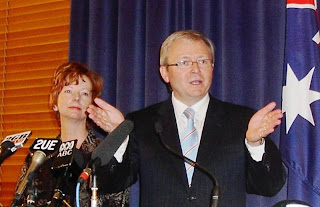The conflict in
Syria is over four years old, with no signs of an end in the increasing
violence and death toll.
The continuing
conflict has forced millions of people to seek protection in other countries.
As Europe has witnessed large amounts refugees from Syria, bringing to the realisation
that it is not just a regional concern but also an international one. As I have
written about in earlier posts, the international community has not effectively
found a solution to ending the conflict. The United Nations Security Council
has been divided, with Russia and China vetoing four key resolutions aimed at putting
pressure on the Syrian government to put an end to the violence and negotiate
peace.
Now we have a
situation where the Assad regime has managed with the support of Russia to keep
control of much of the strategic areas of Syria, including the major coastal
towns and cities. Reports over the last few weeks have speculated increasing assistance to the Assad regime by Russia, as a number of jets, hundreds of personnel and other military equipment have been sent to an airbase in Latakia. The
Russian's have claimed that these forces are not intended to support Assad's
forces, and even the U.S Secretary of State John Kerry stated that this increase is just for protection of Russian forces
already in Syria, although Kerry was concern of future intentions of an
increasing Russian military presence in Syria. This concern by America seems
more of a risk that the U.S led coalition and Russian forces could accidentally
come into conflict, rather than issue of Russian troops and equipment present
in Syria. This renewed military buildup by Russia comes at a time when the U.S
and its allies step up their own campaign not against the Assad regime, but
Isis, who have been gaining a foothold in the continuing violence and instability.
The conflict in
Syria has changed the dimensions of the international community’s response,
with focus turning to combating extremist forces within Syria, rather than
trying to remove Assad or finding a solution to ending the conflict. This war
against Isis has become the key strategy of the international community with
increasing emphasis by the U.S and other countries including Australia and the
UK. In respect to Australia, in the last few weeks Royal Australian Air force jets have begun bombing Isis forces in not just Iraq, but also Syria. The UK on
the other hand limited its role to just fighting Isis in Iraq, but there is speculation that in the next couple of months Parliament could decide to authorise airstrikes within Syria. It’s all well and good that the
international community is fighting against extremists groups like Isis, but
this is only one actor in the conflict, there needs to be a refocus
towards either renewing pressure on
Assad to step down or working with the Assad regime to finding a solution to
bring peace to the people of Syria.
The case of Syria
is now proving that if conflicts of such a nature are not solved early, even
though from the beginning this war had many dimensions from multiple actors internally
and externally, there should have been a larger emphasis for the root causes of
the spread from protest to all out civil war. These causes in my mind was Assad
and his regime. The sad thing with Syria, was that Russia has been a longtime
supporter of Assad and his regime, meaning that the UNSC were unable to
influence the Russians to support the stance of majority of the international
community towards placing pressure on Assad. Even China's long term policy of
non-intervention played a key role in its decision not to agree with the
resolutions tabled by the west.
So the outcome at
present is that we have an outside extremist group in ISIS which stems from the
occupation of U.S led forces and conflict Iraq, increasing its hold on large
parts of both Syria and Iraq. The extreme views and violent tactics of ISIS have become more of a concern to the international community, leading many
countries to be dragged into a U.S led coalition to fight extremism from the
air. This conflict in Syria and the instability in Iraq has spread from a
mostly regional issue to an international concern. Europe at present is
witnessing the fallout of such a spread of violent conflicts, with hundreds of
thousands of refugees from Syria fleeing to the continent.
In the last week
or so, many world leaders or senior foreign advisers have come out and stated
that for any future peace in Syria, will require the international community to
negotiate with Assad. The possibility of a transitional government with Assad
as part of it has been considered for any future peace in Syria. I think in the
reality of the present situation in Syria, dropping the opposition to Assad by
much of the international community would be wise for future peace and
stability. Assad seems to be in a strong position, especially with Russian
forces inside Syria, and he has shown that although the west are against him,
he still has enough allies in Russia and Iran to hold on to power. It’s hard to
predict in what capacity Assad would contain in any future transitional
government. Course you would think that Russia and Iran would want Assad and
this regime to contain much of the control and decision making positions. On
the other hand, the true Syrian opposition forces and the west would want Assad
and his government to maintain a limited position. Thus, any future
negotiations would require a delicate balance, which would legitamise the
concerns of the majority Sunni population, as well protect the many minority groups,
including the Alawite’s. The next few months will be decisive on how the
Syrian’s achieve with assistance from the international community a path of
long term peace and stability.











